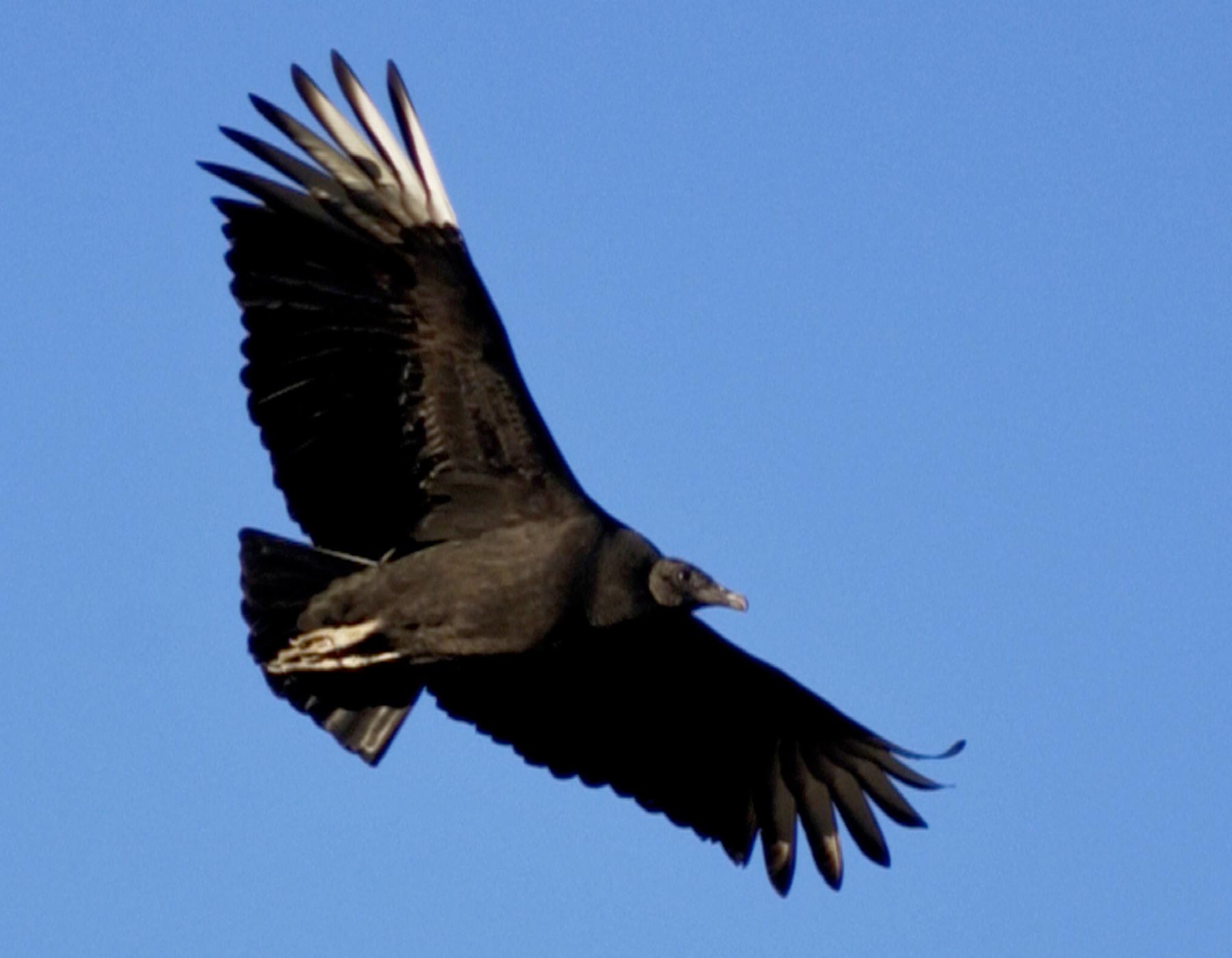
How to protect livestock from the ravages of black vultures
The black vulture is a common resident in Ozarks and often creates angst for farmers and ranchers in the region. They typically nest in wooded areas and soar high in attempt to seek food. When vultures find food, they can form flocks of 20 to 50 birds and unfortunately can sometimes do damage in a hurry.
“Black vultures’ ranges are creeping up into the Ozarks, and they aren’t likely to retreat anytime soon,” Sarah Kendrick, Missouri Department of Conservation State Ornithologist, said.
Black vultures are related to the turkey vulture and typically eat carrion, or the decaying flesh of dead animals. They have a very poor sense of smell and typically follow turkey vultures in an attempt to eat the food they find. However, there has been a rise in vultures preying on young livestock, piglets and lambs, leading local ranchers to seek solutions on appropriate management techniques. Adult livestock animals are not always safe from this species either, ranchers should use extra caution, and protective measures for livestock that have recently given birth because the placenta or afterbirth may attract flocks of these vultures.
While black vultures can cause landowners hardship, they do play an important ecological role in reducing disease by removing animal carcasses from the environment. They also have unbelievable digestive tracts. In fact, they are able to completely metabolize diseases like herpes, anthrax and hantavirus. Their ability to metabolize such diseases aids in prevention of spread to wildlife and livestock in comparison with consumption from other animals or decomposing where they lie. In the late 19th century, the species was being decimated due to marketing hunting and killing birds for their feathers.
For such reasons, the Migratory Bird Treaty Act protects black vultures. The Migratory Bird Treaty Act was instituted to make it illegal for anyone to take, possess, import or barter, any migratory bird, or the parts, nests or eggs of migratory bird species without a federally issued permit. It offers protection to these native North American birds, their nests, and feathers from destruction, making it very complex for ranchers to protect their livestock from such prey. Landowners cannot kill or harm the birds without proper federal permitting. Kendrick described a couple of different approaches ranchers can take to help keep damage to livestock herds at bay.
Initially, if you have relatively few numbers of livestock, pen them when in another location you see black vultures in the area.
Young animals are the most prone to attack from such birds, but each flock stays in an area for a short number of days.
It is also acceptable to stay near the livestock herd to scare way the birds. Another option would be to hang black decoy birds from visible trees to prevent the vultures from hanging around the area, as they may be kept away thinking the decoy is a dead vulture. Purchase a full-body goose decoy and paint it all black. Hang the black dummy vulture in a visible tree or other prominent location that allows the vultures to see it.
Another effective option is utilizing a green or red laser to spook the flock. These lasers are easy to find but work best in low-light conditions.
If all resources have been exhausted and farmers and ranchers are still experiencing losses, contact the local United States Department of Agriculture office and speak to the Animal and Plant Health Inspection Service, APHIS, wildlife service agent. This federal entity should be able to assist in obtaining a federal permit to destroy a bird. The U.S. Fish and Wildlife Service also has permit applications listed on their website under the Migratory Bird Program.
If required permitting is obtained and you are deemed eligible to shoot these birds, do not throw them away.
“Hanging the dead bird in a prominent location as an effigy where other vultures will see it may keep them from returning,” said Kendrick.
While there is no “silver bullet” per se to alleviating harm from black vultures for local herdsmen, there are resources available to allow ranchers to protect their livestock.



